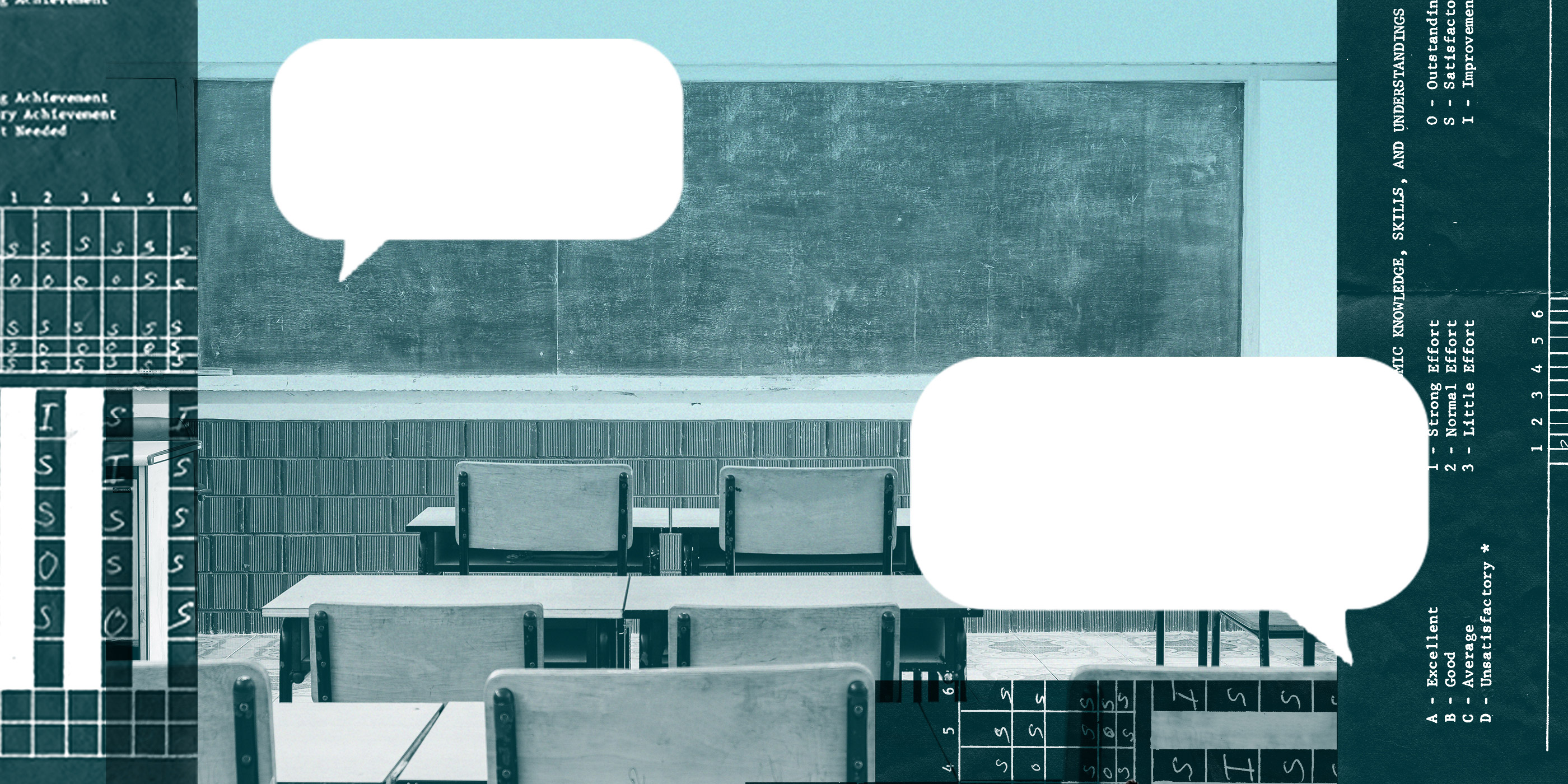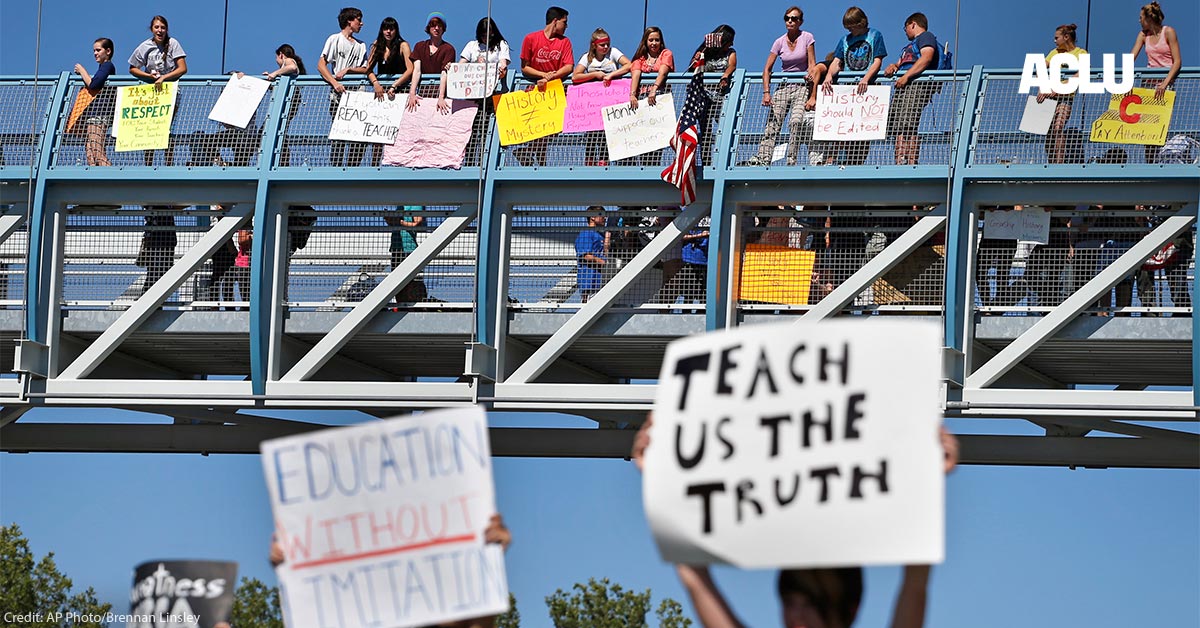High School Students Explain Why We Can’t Let Classroom Censorship Win
In U.S. classrooms and libraries, a coordinated attack on students’ right to learn is underway.
Since January 2021, 44 states have introduced bills or taken other steps to restrict how teachers can teach about racism and sexism in the classroom. These unlawful efforts impact students as young as five or six, and exist throughout the education system, reaching high school students and those at higher education institutions. In addition to censoring classroom conversations, lawmakers and school boards have also enacted sweeping book bans that further restrict access to diverse viewpoints.
The ACLU has challenged classroom censorship laws and book bans nationwide as part of its broader efforts to defend education equity. To better understand who these censorship attempts harm and how young people are being impacted, this back-to-school season, we spoke to high school students from across the country at the ACLU’s annual National Advocacy Institute about how classroom censorship has impacted their right to learn.
Ana Sofia, Florida
I am not able to take AP Psychology or AP African American History. I am also unable to find a lot of the books that I like because they are being banned and removed from my local libraries. I have to work harder to find information and, because it is harder, I sometimes just decide not to look for it.

Ayesha, California
As a woman of color, I haven’t fully felt that I identify with much of the history taught in my classrooms. I think book banning, and taking away certain avenues of education for students to learn about their background and where they came from … is really harmful to students, especially youth who are trying to find their sense of community and where to belong.

Sasha, California
If I'm in the classroom and I can't get an array of perspectives from an array of different authors, I feel that I'm not getting an education representative of our America. If I can't read authors who look like me, who look like my black and brown friends, [who look like] my friends of AAPI descent, then what am I really learning? I'm learning America from the perspective of only one kind of person, and that's not the education that I want, nor is it the education that any student should receive.

Shane, New Jersey
Students learn from being able to read books, voice our opinions, and hear the opinions of others. As someone who's Jewish and has had family murdered in the Holocaust, I understand firsthand that when you start to ban books and label books as forbidden the people in those books soon find themselves also labeled forbidden… Information, the right to knowledge, and the right to converse freely are what protect all of our other rights that we care about so deeply.

Sophia, New York
History isn’t as pretty and simple as some people want to make it seem. It’s very complicated. You really need to have access to all of the information you can get and hear a lot of different opinions …Having access to all viewpoints allows me to expand my knowledge and makes learning a lot more interesting.

Olivia, Florida
Banning books is one of the ways that we are actively stunting educational growth for young students. I think that, for kids, the library is often a haven for where they can go and just garner so many new perspectives and gain an idea of what change can possibly be.
As a kid, I got into advocacy from reading The Hunger Games and seeing the rise of Katniss Everdeen and the revolution. And so, if books like that, like Fahrenheit 451, like The Hunger Games, or Of Mice and Men are banned, these narratives are being erased. Kids can’t get that sort of education and perspective that can encourage them to make change later on as leaders of the future.

Anjali, Pennsylvania
My school district has dealt with book bans and curriculum censorship…I really saw a burden come on our educators and our students where we didn't feel like we were being adequately represented in the curriculum, and we didn't feel that we were able to grow in our knowledge in a very truthful and real way. We need to have the opportunity to explore our knowledge at a deeper level and not be restricted by adults that think that we're not smart enough to understand.

Keaton, California
If my teachers weren’t allowed to talk about issues I cared about, I would honestly feel a little bit belittled, especially because teachers are very looked up to. They’re the people that we learn from, who educate us since we're little. And if our role models can't speak to something that we're passionate about, what does that say about our passions? Are those belittled as well? Are our feelings belittled? Are we invalidated? I think that it instills in us from a young age that we can only say certain things and can't speak our mind.


